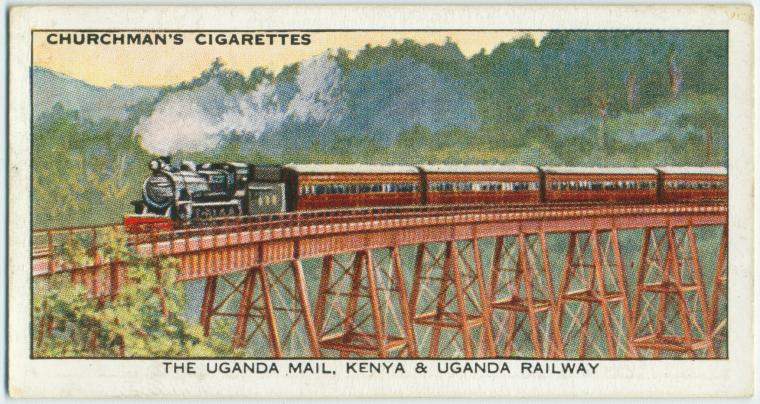A Grain of Wheat is a novel about the inhabitants of a village in Kenya in 1963 in the last few days before the celebrations for Uhuru — that is, Kenyan independence. It was originally published in 1967, so the material was completely current at the time, although after finishing it that I read in the introduction that
Ngũgĩ revised A Grain of Wheat in 1987, to make the ‘world outlook’ of his peasants more in line with his ideas of the historical triumph of the oppressed.
and that
Ngũgĩ has said of the 1967 version of A Grain of Wheat that his ‘peasant and worker characters’ had the ‘vacillating mentality of the petite bourgeoisie’.
As far as I can gather, the revisions were relatively minor, and I guess I support the author’s right to mess around with his earlier work if he wants to, but I still find it vaguely frustrating not knowing what was what. And it seems like an odd thing to do, to me. But there you go.
Incidentally, Ngũgĩ’s early work, including this book, was written in English, but for the past 30 years or so he has written in Gĩkùyũ. Rejecting the colonial language has obvious political and social significance, but to switch from a language with hundreds of millions of speakers to one which is a minority language even in Kenya is still a striking decision.
The characters in the book are all dealing with the aftermath of the Mau Mau rebellion, having lost family members or having suffered detention, forced labour and torture. There’s something slightly topical about that at the moment; not just because we recently learned that Barack Obama’s grandfather was tortured by the British at that period, but also because insurgents being detained without trial and tortured have been in the news recently.
I didn’t read the book, though, as being principally about the relationship between colonist and colonised. Rather, it’s about the relationships between the Africans and the way they’ve been affected by events. Some of them worked for the British; others fought them. A man returns to his wife after years away in prison to find she has had a baby by another man. No one is left untouched. All this is told in flashback, so we gradually learn how characters became the way they are.
Obviously none of this would have happened if it wasn’t for the British, so they (we) are central in that sense, but still, the novel is building up to Uhuru, when the young Duke of Edinburgh will sit in a stadium in Nairobi and watch the flags changing over, and the British part of the story will peter out. I read the novel as being about what is left behind; in that sense it reminded me of How the Soldier Repairs the Gramophone, Saša Stanišić’s novel about Yugoslavia. A war of independence against a colonial power is I suppose a peculiar kind of civil war, and it tears apart the fabric of the country in a similar way.
Here’s an extract.
He took a jembe and a panga to repeat the daily pattern his life had now fallen into since he left Maguita, his last detention camp. To reach his new strip of shamba which lay the other side of Thabai, Mugo had to walk through the dusty village streets. And as usual Mugo found that some women had risen before him, that some were already returning from the river, their frail backs arched double with water-barrels, in time to prepare tea or porridge for their husbands and children. The sun was now up: shadows of trees and huts and men were thin and long on the ground.
‘How is it with you, this morning?’ Warui called out to him, emerging from one of the huts.
‘It is well.’ And as usual Mugo would have gone on, but Warui seemed anxious to talk.
‘Attacking the ground early?’
‘Yes.’
‘That’s what I always say. Go to it when the ground is soft. Let the sun find you already there and it’ll not be a match for you. But if he reaches the shamba before you — hm.’Warui, a village elder, wore a new blanket which sharply relieved his wrinkled face and the grey tufts of hair on his head and on his pointed chin. It was he who had given Mugo the present strip of land on which to grow a little food. His own piece had been confiscated by the government while he was in detention. Though Warui liked talking, he had come to respect Mugo’s reticence. But today he looked at Mugo with new interest, curiosity even.
‘Like Kenyatta is telling us,’ he went on, ‘these are days of Uhuru na Kazi.’ He paused and ejected a jet of saliva on to the hedge. Mugo stood embarrassed by this encounter. ‘And how is your hut, ready for Uhuru?’ continued Warui.
‘Oh, it’s all right,’ Mugo said and excused himself. As he moved on through the village, he tried to puzzle out Warui’s last question.
A Grain of Wheat is my book from Kenya for the Read The World challenge.
» The cigarette card from the Empire railways series is from the New York Public Library online collection. There is a train that features quite heavily in the book, so it’s not a completely random choice of image.
